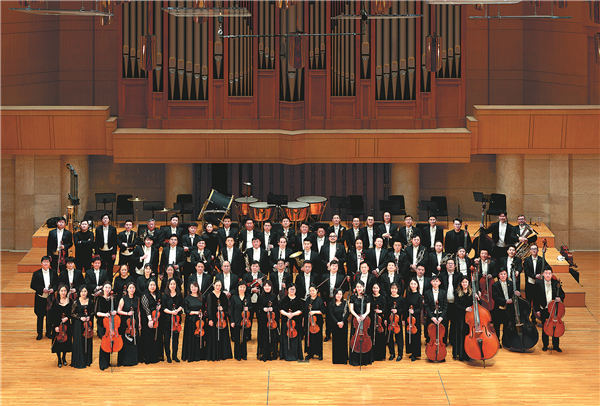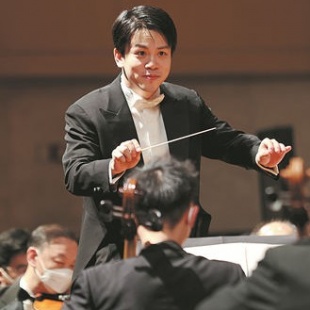A conductor of cultural nuance shows his skills


Born in 1986, Li has dazzling experience of winning international competitions and working with international orchestras. He studied at the Central Conservatory of Music in Beijing, majoring in conducting under the mentorship of well-known conductor Xia Xiaotang.
In 2011, he enrolled in the Hanns Eisler School of Music Berlin to study a master's degree under German conducting educators Christian Ehwald and Hans-Dieter Baum. He received the Konzertexamen degree, the highest certification of German conservatories, in 2017.
After the Rachmaninoff competition, he was occupied with concerts around Europe, including those at the Copenhagen Opera House in Denmark, the Verdi Festival in Italy and the China-Germany International Cloud Music Festival that celebrated the 50th anniversary of China-Germany diplomatic relations.
He recently returned to China, with two concerts titled An Homage to Classics on Dec 28 and 29 at Beijing's Forbidden City Concert Hall, marking the beginning of the theater's New Year concert series.
Performed by the Beijing Symphony Orchestra, the concert included works by Russian classical composers, such as well-known pieces by Tchaikovsky, excerpts from Igor Stravinsky's orchestral work The Firebird and the symphonic suite Scheherazade by Nikolai Rimsky-Korsakov.
Li had never conducted most of these pieces before, other than The Firebird and Tchaikovsky's Polonaise from the opera Eugene Onegin, but new ideas kept emerging during the rehearsals, including the use of rubato — a change in rhythm or tempo not indicated in the score — for certain phrases.
"An idea came to me just several days before the concert. I simply thought, 'why not?' When it comes to music, the cultural background and language are very important, but it's also about being natural and expressing genuine feelings," Li says.
"When a person understands the culture and language, music comes naturally. I used to wonder why some conductors' rubato choices seem particularly effortless, and the answer lies in their understanding of the culture, language and tradition behind the music."





































